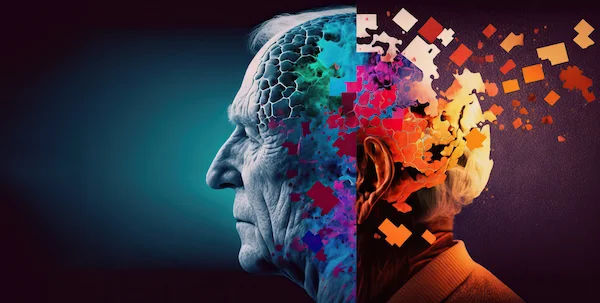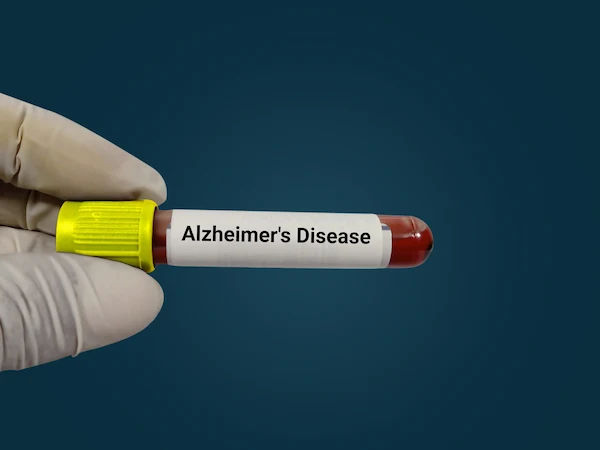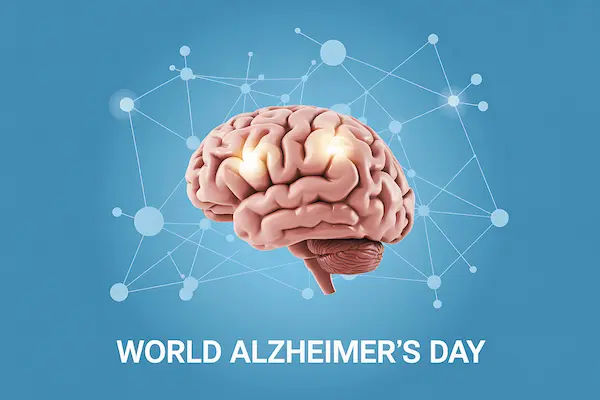World Alzheimer's Day: Understanding, Supporting, and Taking Action
Know about alzheimers Day, when it is, signs, symptoms, prevention, risk factors, role of diet and exercise and more.

Written by Dr. Siri Nallapu
Reviewed by Dr. Rohinipriyanka Pondugula MBBS
Last updated on 13th Jan, 2026

Introduction
Every year, on September 21st, the world unites under a banner of purple to observe World Alzheimer's Day. This international campaign is dedicated to raising awareness, challenging the stigma, and demystifying the realities of Alzheimer's disease and other dementias. This day serves as a crucial reminder that those affected are not alone and that education is the first step toward empowerment. In this comprehensive guide, we will explore the history and significance of World Alzheimer's Day, delve into the science behind the disease, identify its early signs, and discuss practical ways to support brain health and caregivers.
What is World Alzheimer's Day?
World Alzheimer's Day is the focal point of World Alzheimer's Month, an international campaign launched by Alzheimer's Disease International (ADI) in 2012. It’s a day where organisations and individuals around the globe concentrate their efforts on raising awareness and calling for action and support from policymakers and the public.
Consult a Psychiatrist for Personalised Advice
The History and Origin of the Day
The campaign was first launched on September 21, 1994, to mark the 10th anniversary of ADI, which was founded in 1984. The choice of September 21st was significant, aligning with the transition into autumn in the Northern Hemisphere and spring in the Southern, symbolising a change and a new beginning in the fight against the disease. What started as a small initiative has now grown into a massive global movement, with countless countries participating in activities, memory walks, educational seminars, and social media campaigns.
The Significance of the Annual Theme
Each year, ADI announces a specific theme for World Alzheimer's Day to focus the global conversation. Past themes have included "Remember Me" (2016), "The Bravest Thing I Ever Did Was To Tell My Story" (2017), and "Let's Talk About Dementia" (2019). The theme for World Alzheimer's Day 2024 is "Never Too Early, Never Too Late." This powerful theme underscores the importance of identifying risk factors and implementing proactive strategies for risk reduction at all stages of life, while also emphasising that it's never too late to seek a diagnosis, support, and care.
Alzheimer's vs. Dementia: Clarifying the Confusion
A common point of confusion is the difference between Alzheimer's and dementia. It's crucial to understand that dementia is not a specific disease; it is an umbrella term for a set of symptoms that affect memory, thinking, and social abilities severely enough to interfere with daily life. Alzheimer's disease is the most common cause of dementia, accounting for 60-80% of cases. Other types include vascular dementia, Lewy body dementia, and frontotemporal dementia. Think of it this way: dementia is like "fever", a symptom with many possible causes, and Alzheimer's is one specific illness, like "influenza," that causes that symptom.
Recognising the Signs: Early Symptoms of Alzheimer's Disease
Early detection of Alzheimer's can significantly impact the management of the disease. It's more than just simple forgetfulness; it's a persistent and disabling decline in cognitive function. Key early signs of Alzheimer's to watch for include:
Memory loss that disrupts daily life: Forgetting recently learned information, important dates, or events.
Challenges in planning or solving problems: Difficulty following a familiar recipe or managing monthly bills.
Difficulty completing familiar tasks: Trouble driving to a familiar location or remembering the rules of a favourite game.
Confusion with time or place: Losing track of dates, seasons, and the passage of time.
Trouble understanding visual images and spatial relationships: Difficulty reading, judging distance, or determining colour.
If you or a loved one is experiencing persistent memory loss or cognitive changes, it is crucial to consult a doctor for a proper evaluation. You can book an online consultation with a neurologist on Apollo24|7 to discuss your concerns confidentially.
The 7 Stages of Alzheimer's Disease
Alzheimer's is a progressive disease, often described in seven stages (as per the Global Deterioration Scale):
1. No Impairment: No memory problems are evident.
2. Very Mild Decline: Minor memory lapses, but not distinguishable from normal age-related forgetfulness.
3. Mild Decline: Friends and family begin to notice difficulties. Problems with finding words and organisation.
4. Moderate Decline: Clear-cut symptoms. Difficulty with finances, forgetting recent events.
5. Moderately Severe Decline: Major gaps in memory and need assistance with daily activities (e.g., choosing clothes).
6. Severe Decline: Memory continues to worsen, personality changes may occur, and extensive help with daily activities is needed.
7. Very Severe Decline: Loss of the ability to respond to the environment, carry on a conversation, and eventually, control movement.
The Global Impact: Alzheimer's Disease by the Numbers
The scale of Alzheimer's is staggering. According to ADI's World Alzheimer Report 2023, over 55 million people are living with dementia worldwide, and this number is expected to nearly double every 20 years, reaching 139 million by 2050. Someone in the world develops dementia every 3 seconds. The total estimated global cost of dementia is over $1.3 trillion USD, a figure that includes medical, social, and informal care costs. These statistics highlight why Alzheimer's awareness is not just a health issue but a significant social and economic priority for all nations.
Known Risk Factors and Potential Causes
The exact causes of Alzheimer's are not fully understood, but it's likely due to a combination of genetic, lifestyle, and environmental factors.
Age: The greatest known risk factor; the majority of people with Alzheimer's are 65 and older.
Family History and Genetics: Those with a parent or sibling with Alzheimer's are more likely to develop it.
Head Trauma: A severe head injury may be linked to future risk.
Heart-Head Connection: Growing evidence links brain health to heart health. Risk factors include cardiovascular disease, stroke, high blood pressure, and high cholesterol.
Modifiable vs. Non-Modifiable Risk Factors
This is a key distinction. Non-modifiable risk factors are things we cannot change, like age and genetics. However, focusing on modifiable risk factors offers hope. These include physical inactivity, obesity, smoking, hypertension, diabetes, depression, and social isolation. Addressing these through lifestyle changes is a core component of how to prevent Alzheimer's disease.
Is Prevention Possible? Strategies for Brain Health
While there's no surefire way to prevent Alzheimer's, a strong body of research suggests that adopting a healthy lifestyle can reduce your risk or delay the onset of symptoms.
The MIND Diet and Its Benefits
The MIND (Mediterranean-DASH Intervention for Neurodegenerative Delay) diet is specifically designed to boost brain health. It combines elements of the Mediterranean and DASH (Dietary Approaches to Stop Hypertension) diets. It emphasises:
Green leafy vegetables (e.g., kale, spinach)
Other vegetables
Nuts
Berries (especially blueberries and strawberries)
Beans
Whole grains
Fish
Poultry
Olive oil
Wine (in moderation)
The Role of Physical and Mental Exercise
Physical Exercise: Regular physical activity increases blood flow to the brain and is associated with a larger volume of brain matter. Aim for at least 30 minutes of moderate exercise most days.
Mental Exercise: Keep your brain engaged. Learn a new skill, do puzzles, read, play strategy games, or take a course. "Use it or lose it" is a relevant mantra for cognitive function.
For those managing conditions like diabetes or hypertension that are risk factors, regular monitoring is key. Apollo24|7 offers convenient home collection for tests like HbA1c and lipid profiles, making it easier to keep track of your health.
The Heart of the Matter: Supporting Caregivers
The role of an Alzheimer's caregiver is one of the most challenging and emotionally taxing. Alzheimer's support for caregivers is not a luxury; it is a necessity. Caregivers often experience high levels of stress and depression.
Recognising and Preventing Caregiver Burnout
Caregiver burnout is a state of physical, emotional, and mental exhaustion. Signs include withdrawal from friends and family, loss of interest in activities, and feelings of hopelessness. Prevention strategies include:
Asking for and accepting help. You cannot do it all alone.
Joining a support group. Connecting with others in similar situations reduces feelings of isolation.
Taking regular breaks. Respite care is essential for long-term sustainability.
Taking care of your own health. You can't pour from an empty cup.
How to Get Involved and Show Your Support
World Alzheimer's Day is a call to action for everyone. You don't need to be directly affected to make a difference.
Wear purple, the official colour of the Alzheimer's movement.
Educate yourself and others. Share facts and resources on social media using hashtags like #WorldAlzheimersDay and #RememberMe.
Participate in a Memory Walk or other local fundraising events.
Donate to reputable organisations like Alzheimer's Disease International (ADI) or your national Alzheimer's association.
Volunteer your time at a local care home or support group.
Conclusion
World Alzheimer's Day is more than a date on the calendar; it is a global promise to remember, to support, and to fight. The journey with Alzheimer's is undeniably difficult, but it is paved with moments of profound human connection and love. By deepening our understanding of the disease, from its early symptoms to the stages of dementia, we replace fear with knowledge and stigma with empathy. By supporting research, caregivers, and those living with the disease, we build a more compassionate world. Let this day be a starting point. Commit to learning more, talking openly, and taking proactive steps for your brain health. Together, we can ensure that no one faces Alzheimer's alone.
Consult a Psychiatrist for Personalised Advice
Consult a Psychiatrist for Personalised Advice

Dr. Debdatta Pati
Psychiatrist
18 Years • MBBS, DPM, MD (PSYCHIATRY)
Kolkata
MCR SUPER SPECIALITY POLY CLINIC & PATHOLOGY, Kolkata

Dr Rohit Ranjan
Psychiatrist
10 Years • MBBS, MD (Psychiatry)
Bengaluru
Apollo Medical Center, Marathahalli, Bengaluru
(25+ Patients)

Dr. Kommoju Venkata Eswar
Psychiatrist
8 Years • MBBS, MD Psychiatry
Avenue
Wellness Point, Avenue

Dr. Vivek Pathak
Psychiatrist
15 Years • MBBS, MD (Psychiatry)
Noida
𝗗𝗿 𝗞𝗨𝗠𝗔𝗥'𝗦 𝗙𝗔𝗠𝗜𝗟𝗬 𝗖𝗟𝗜𝗡𝗜𝗖 𝗮𝗻𝗱 𝗩𝗔𝗖𝗖𝗜𝗡𝗔𝗧𝗜𝗢𝗡, Noida
(25+ Patients)

Dr Harish K S
Psychiatrist
6 Years • MBBS, MD Pychaitrist
Bengaluru
Apollo Clinic, JP nagar, Bengaluru
More articles from Alzheimers Disease
Frequently Asked Questions
1. What is the theme for World Alzheimer's Day 2024?
The theme for 2024 is 'Never Too Early, Never Too Late.' It focuses on risk factors and risk reduction, highlighting that it's never too early to start preventive measures or too late to seek a diagnosis and care.
2. What's the difference between Alzheimer's and dementia?
Dementia is a general term for a decline in mental ability severe enough to interfere with daily life. Alzheimer's is a specific brain disease and is the most common cause of dementia, accounting for 60-80% of cases
3. What are the very first signs of Alzheimer's?
The very first signs often include memory loss that disrupts daily life (especially forgetting recently learned information), challenges in planning or solving problems, and difficulty completing familiar tasks.
4. How can I get tested for Alzheimer's?
Diagnosis involves a comprehensive medical assessment, including a review of medical history, mental status tests, neurological exams, and sometimes brain imaging. If you have concerns, your first step should be to consult a doctor. You can start with an online consultation on Apollo24|7 to discuss your symptoms and next steps
5. How can I help someone who is a caregiver for a person with Alzheimer's?
Offer specific help, such as bringing a meal, running an errand, or sitting with their loved one to give them a break. Most importantly, listen without judgment and offer emotional support.




